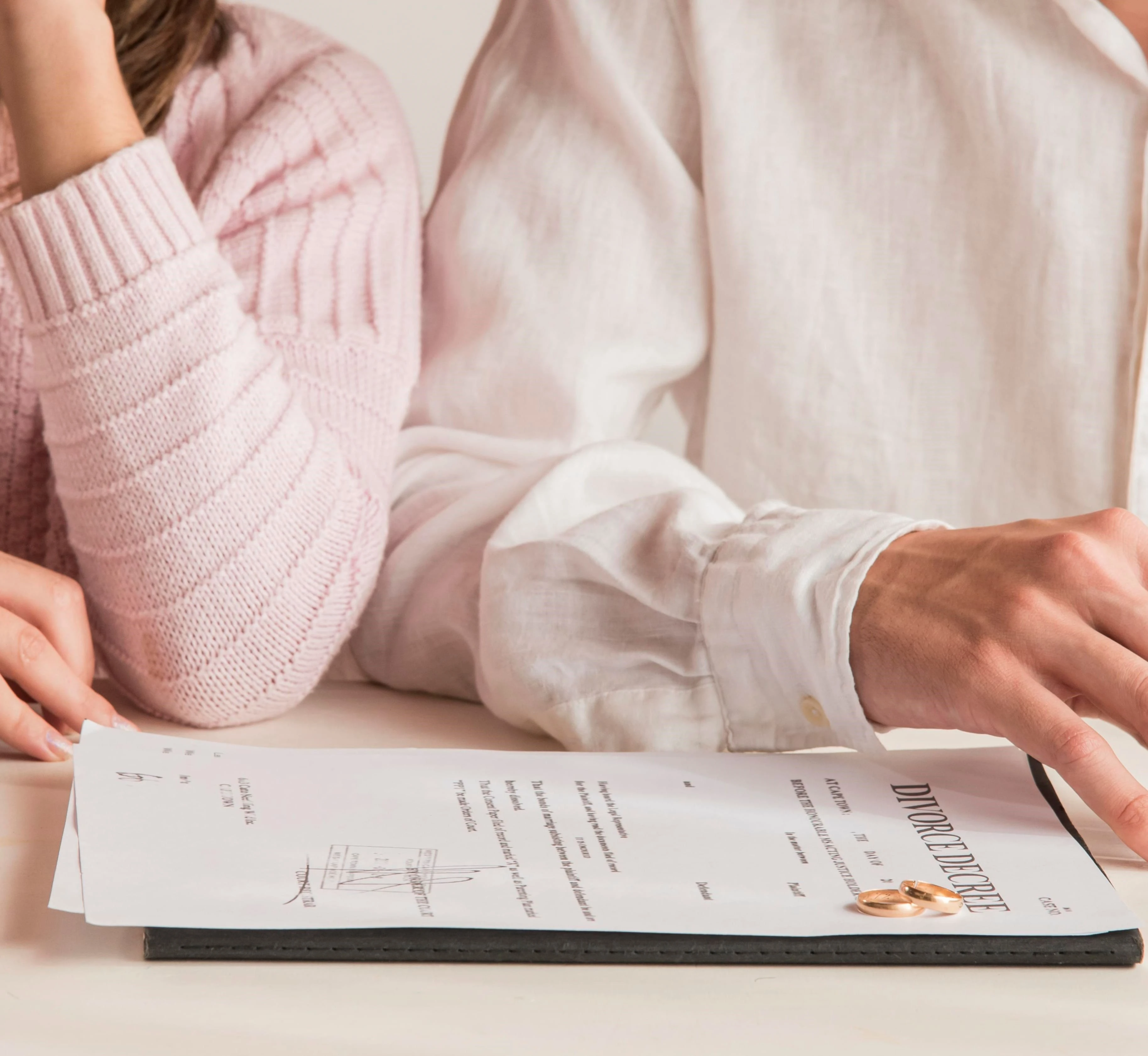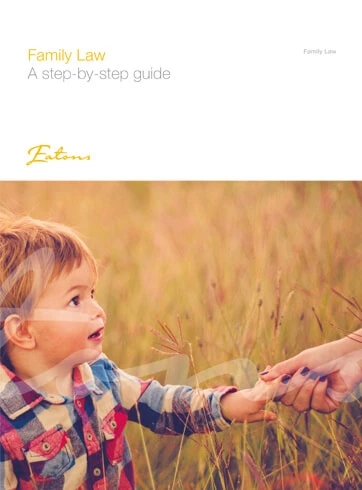Services
Divorce Law
Whatever the reason to begin divorce proceedings, having Eatons Solicitors by your side can make the journey easier.
Request A Callback
Divorce Law
You & Your Divorce
Perhaps you’ve reached the end of an unhappy relationship and divorce seems the only option, or perhaps you’ve received a divorce petition. Or you may be looking for financial support and arrangements for children. Either way Eatons can help.

Download Our Guide
Read our family law information pack put together by Eatons Solicitors, lawyers in Bradford, Bingley and Yeadon.

Some of our FAQ's
Click below to see some of our FAQs, providing the answers to help you understand our services better. Still can't find what you're looking for? Please don't hesitate to reach out to us directly.
How do I start divorce proceedings?
To apply for a divorce, you will first need to check you are eligible. This will mean:
You will then need to complete a divorce application, either as a sole applicant or a joint applicant along with your spouse. This begins by filling out a Form D8.
How long does it take to get divorced?
Getting a divorce is not a quick process. In England and Wales, a divorce generally takes between six and eight months to be finalised, but can last up to a year or more. There are two key waiting periods:
Factors such as court delays, financial disputes and lack of cooperation from one or both spouses (see below) can all impact the length of the process.
What do I need to prove to get a divorce?
What happens if my spouse refuses to get divorced?
In short, your spouse cannot refuse to get divorced, but they can make it very difficult, time-consuming and costly by refusing to cooperate. If your spouse refuses to sign the divorce papers, there are several options:
Do I have to use a solicitor to get divorced?
You do not need a solicitor to get a divorce. However, it is highly recommended that you seek advice before applying for divorce proceedings. Particularly where financial matters and child arrangements are involved, speaking to an expert in family law can ensure you follow the correct course of action.
How much does a divorce cost?
As everyone's situation is different, the cost of each divorce will vary. Every divorce is subject to a standard court fee of £593 to process the application. The cost tends to be lower in an uncontested divorce, when a solicitor is acting, and could be less than £1,000, plus court fees - this will simply involve preparing the paperwork and progressing the proceedings, but this will vary based on the experience of the solicitor.
In cases where financial and/or child arrangements need to be resolved, costs are likely to be higher, particularly where additional court proceedings are required.
There is no standard fee, so it is important to consult a family law specialist before proceeding.
Do we have to agree a financial settlement before we can divorce?
You can agree to a financial settlement either before or after your divorce has been finalised. However, a consent order cannot be made legally binding until a conditional divorce order has been granted.
Ideally, the terms of the financial settlement should occur at the same time as any divorce proceedings.
In addition, agreeing a financial settlement before you or your spouse marry, remarry or enter a partnership can have implications on any claims you make, so it is important to take this into account.
Who gets the house in a divorce?
The allocation of assets will depend entirely on the circumstances of each case. The nature of your marriage, living arrangements, whether you have children, previous ownership of properties and several other factors will all be taken into account.
There is no standard process of allocating the family home(s) - it is best to speak to a family law expert to assess your options and the likely course of action.
How can I avoid the divorce being difficult and painful for my family?
The best way to minimise any difficulty, pain, and sadness in a divorce is for both parties to cooperate fully. This can not only help to speed up the process by reducing delays and disputes, but can also ensure that the wellbeing of any children is prioritised.
Where financial matters are involved, having an idea about the division of any assets and financial compensation before you enter into divorce proceedings can also help to minimise disruption further along the process.
A divorce is a complicated process that can take a physical and emotional toll on you and your family.
For advice and support to ensure that you are following the best course of action, get in touch with our team of divorce solicitors via email or our contact form, or call one of our offices to speak in confidentiality with a trusted adviser.
Providing you with a quality service, we ensure that your case is our focus and our Yorkshire roots mean we aim to be friendly and trustworthy at each touchpoint
Trusted & Friendly
Well Established
Quality Service
Customer Focused
Yorkshired Based
Whether you're a business, family, or individual, Eatons has a range of services which can help you.
For You
For You
For You
For You
For You
For You
For You
For You
For You
For You
For You
For You
For You